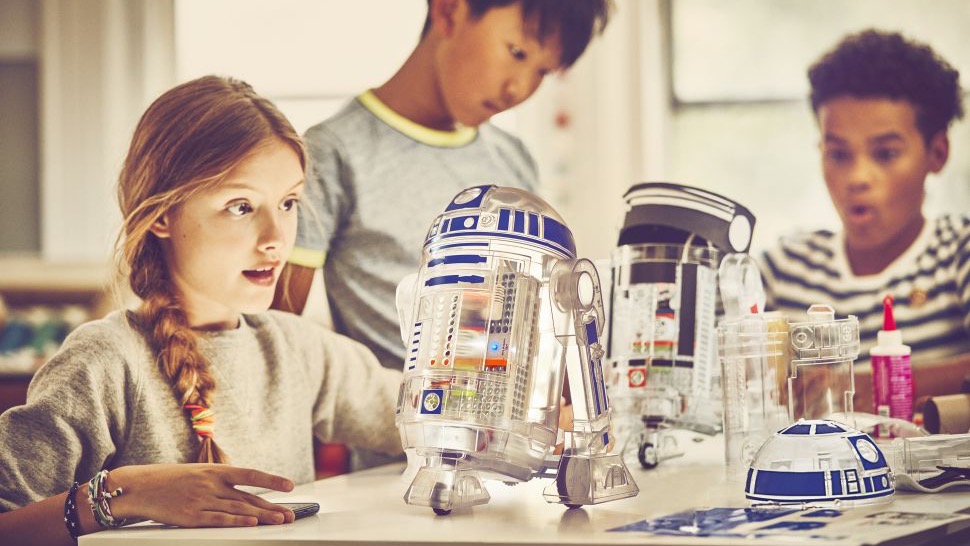Learn to code with the littleBits Star Wars Droid Inventor Kit this April
Coding comes to the DIY droid

Sign up for breaking news, reviews, opinion, top tech deals, and more.
You are now subscribed
Your newsletter sign-up was successful
Toys that can help children learn to code are all the rage these days, and you can add another one to the list beginning mid-April.
The littleBits Star Wars Droid Inventor Kit is adding a coding capability, marking the first time coding has come to a littleBits consumer product.
Based on the Scratch Books coding structure, the new coding canvas includes six new missions plus an open coding canvas, letting young coders flex their programming muscles.
With the new coding feature, kiddos (and kids at heart) can customize their DIY Droid, bringing even more fun and function to the toy. littleBits says the new missions build upon those already available on the Droid.
The coding capability will be available to those who buy the Droid Inventor Kit for the first time as well as those who already own it. It's just a matter of downloading the app, or updating to the newest version. From there, it's a simple drag and drop.
The Droid Inventor Kit retails for $99.95/£99.99/AU$159 (it's currently on sale for £79.95 at Amazon UK). The kit lets anyone build an R2-D2 droid that can beep, whistle, move around and be controlled through the app. There's also a 'Force Mode' that has the Droid move away from an extended hand, just like a Jedi. And builders don't have to stick to the script; the droid is modular, so anyone can build a droid to their liking, including one that features household items.
Now, with the new coding capability, there's even more room to get creative with the Droid Inventor Kit.
Sign up for breaking news, reviews, opinion, top tech deals, and more.
- Hands on: Nintendo Labo review
- Best toys 2018: smart toys for kids of all ages

Michelle was previously a news editor at TechRadar, leading consumer tech news and reviews. Michelle is now a Content Strategist at Facebook. A versatile, highly effective content writer and skilled editor with a keen eye for detail, Michelle is a collaborative problem solver and covered everything from smartwatches and microprocessors to VR and self-driving cars.